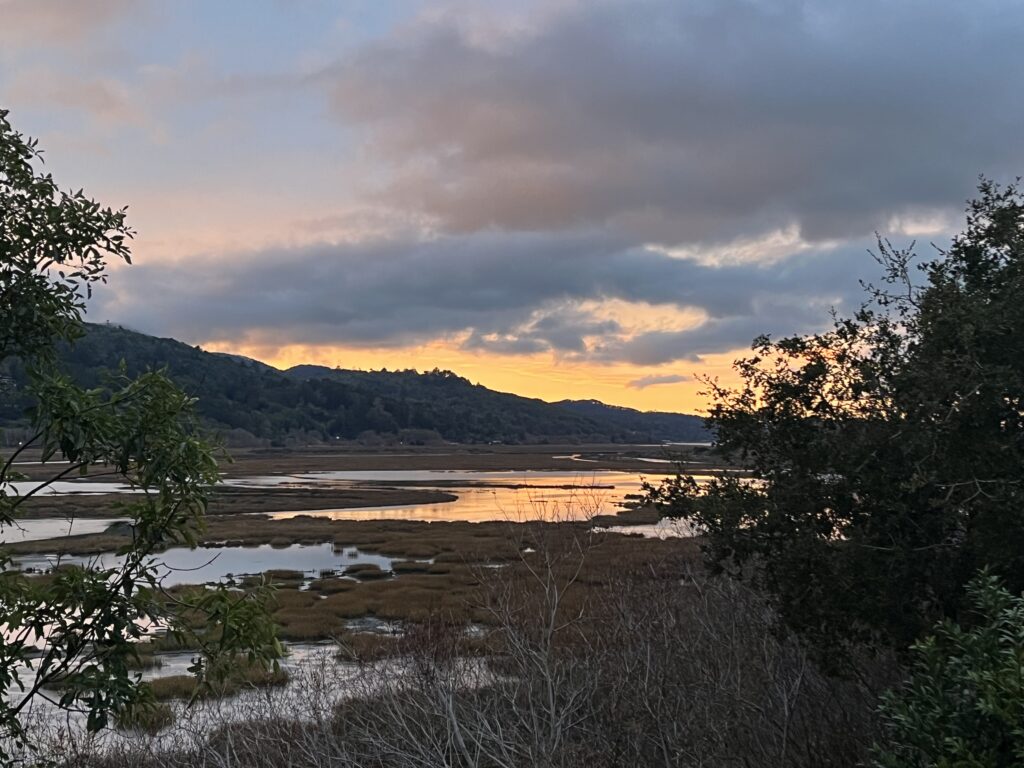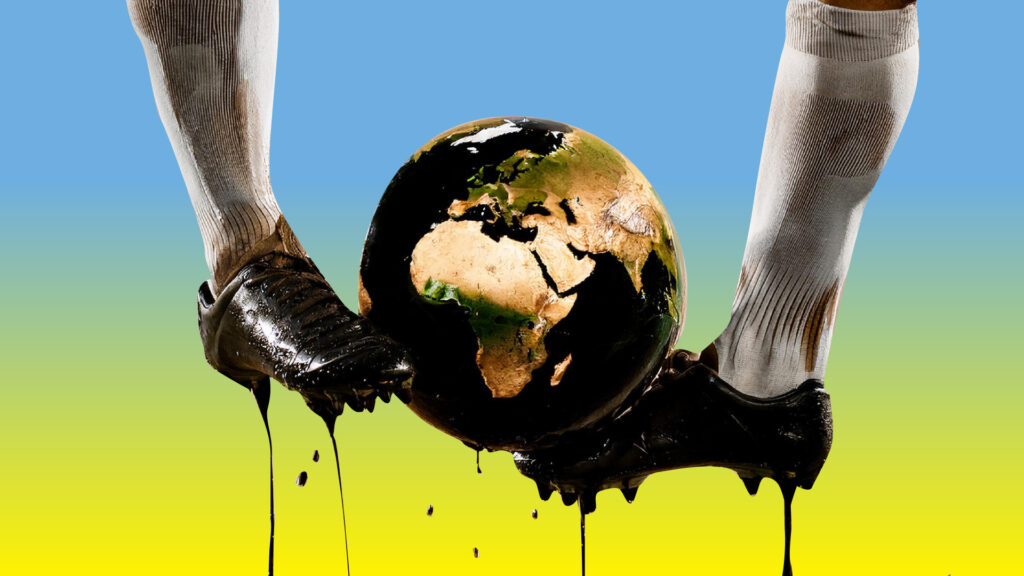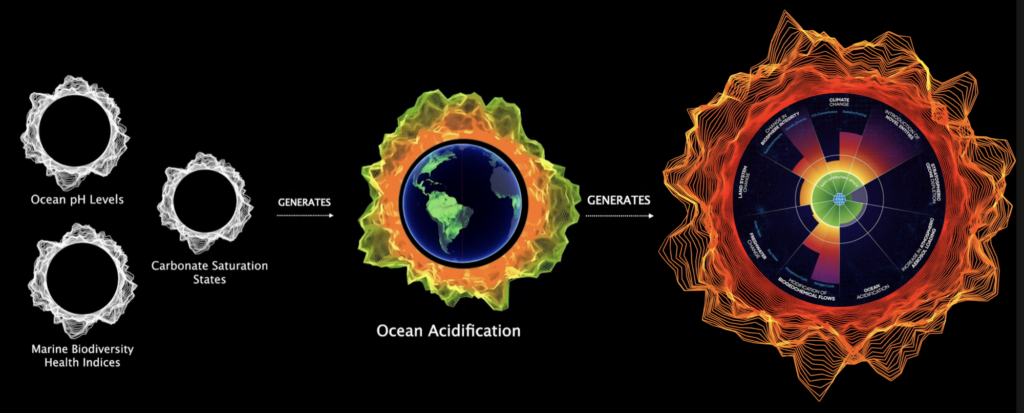The best climate news of 2023 hasn’t just come out of closed-door diplomatic meetings. It’s been happening in communities across the world, where climate anxiety is becoming a hot topic of mainstream conversation*. Anxiety, depression and grief around climate change aren’t pathological: They are reasonable, natural reactions to a fearsome threat that has only grown stronger since the last “breakthrough” at Paris in 2015. These feelings have been shared by the most informed people, climate scientists, for years. And while a mental health crisis might not sound like good news, this one has the potential to do what 28 Conferences of the Parties, or COPs, (including Paris or, frankly, COP28 in the United Arab Emirates) have not: spark real mobilisation in response to the climate threat.
True public engagement with climate anxiety entails facing up to its causes –– including the disturbing lack of any credible plan for mitigation of — or adaptation to — climate breakdown. To face these facts is to understand that COPs will continue to badly fail us until a popular mobilisation ends the ‘outsourcing’ of our future to huge meetings of powerless diplomats. Such a mobilisation would help millions to use their nervous energy to make a difference rather than feeling overwhelmed. To catalyse such a mobilisation is the founding vision of the Climate Majority Project, and as our new campaign explores, paying attention to our climate anxiety is a prerequisite for this collective action.
The COP process is itself a recipe for public anxiety. When we sense that something important (in this case our future) is at stake, instinctive energy rises up in us — but when we find no productive way of using that energy, it becomes anxiety. To passively watch a process run by elites, which is supposed to produce crucial breakthrough agreements on carbon dioxide emissions, but takes 28 years to merely mention their main cause, fossil fuels, builds this nervous energy. To settle down, we can try reassuring ourselves that “progress has been made” or is “around the corner.” But as it becomes clear that warming will not be kept below the agreed 1.5C threshold, eight years after Paris pledges that were supposed to produce plummeting emissions, these reassurances ring hollow. Our anxieties will remain despite the newest pledges out of COP28, and if we want fossil fuels to actually be phased out, we should not ignore them.
So let’s use this year’s agreement not as a means of avoiding our anxieties but continuing to take the practice of dealing with anxiety more seriously. Lots of us, all at once. To feel our nerves and take a deep breath – lots of deep breaths – and then start actually talking about our true feelings and what to do about them. All of this is easier to do now that climate anxiety is a publicly discussed problem. It’s easier to find others to face our fears with. Places to go. There are already dedicated spaces, online and in-person, run by people who’ve been at it for years. The Climate Psychology Alliance, Force of Nature and the Pocket Project, a nonprofit working to support the healing of collective trauma, which staged the Climate Consciousness Summit 2023 in parallel with COP28, among others.
Facing the Threat
It’s becoming easier to see that we aren’t alone in our fears: that a majority of us humans are deeply concerned about climate. We aren’t fully organised and haven’t agreed on a plan for a response. But in emergencies from burning buildings to world wars, that’s how responses start. We need to keep our calm in the face of a threat, agree to face it together, and coordinate around plans for mobilisation. When we know we can productively use the energy that comes from facing a threat, then we are more capable of actually taking in the full scale of that threat and examining its true nature without turning away. All of this emotional subtlety is what we need to become equal to the challenges ahead of us, in our different ways. As Bayo Akomolafe says, the times are urgent; let us slow down. Slow down enough to think clearly about how to deal with the broken system that has been on display in the United Arab Emirates.
We should begin by addressing this anxiety at scale in classrooms across the world. Here educators are dutifully teaching the science of Earth’s changing climate system, and finding that they can’t avoid triggering difficult emotions among their students. In classrooms we see the wider unresolved conflict of the climate crisis in a nutshell: We need the truth, but the truth is hard. The science that students are learning says that their future may be much harder than they thought, and many young adults now worry about social collapse. If students assume breakdown is inevitable, they get depressed. Or they can just avoid thinking about it, and numb out. Or they can resist it and become fearful and anxious**.
All of these reactions happen and students deserve help in navigating them. However, veterans of climate anxiety have found that another option does exist, or emerge: students can also become inspired — if they feel confident in their part in a shared endeavour. Indeed, beyond the classroom, awareness of what’s at stake, and accompanying emotion, is necessary to motivate decisive action. And help in turning anxiety into motivation is out there.
The position our educators are in is like that of a doctor who must relate a difficult prognosis. Except they need considerably more help, support, and understanding of their difficult position, because this is not what they have been trained to do. No one adult, even in a pastoral role, can make our students feel safe when society has failed them. We all must set an example together, especially adults, of how to accept and respond to an uncertain situation.
Recent public attention to climate anxiety makes it easier for everybody to handle their difficult emotions, and now is no time to stop this trend. We need to be reminded often that billions of us are feeling similarly. Next year promises to be an important year for grappling with troubling, and well-founded emotions about our future and then together turning these into a real breakthrough in climate action rather than climate pledges. If we do, then we may, for once, arrive at the next COP feeling less anxious than when this year’s began.
Liam Kavanagh is Co-Director of the Climate Majority Project.
The Climate Majority Project supports the silent majority of climate-concerned citizens to respond in meaningful, relevant ways to the climate and ecological emergency.
*ONS (climate anxiety 2022): 74 percent of adults in Great Britain aged 16 years and over said they were (very or somewhat) worried about climate change.
** The biggest study yet on climate anxiety and young people — published recently in the English journal The Lancet – found that 40 percent of Gen Zers surveyed worldwide are hesitant to have children because of the climate crisis. Other surveys have found that a similar number of millennials feel the same way.
Subscribe to our newsletter
Stay up to date with DeSmog news and alerts







